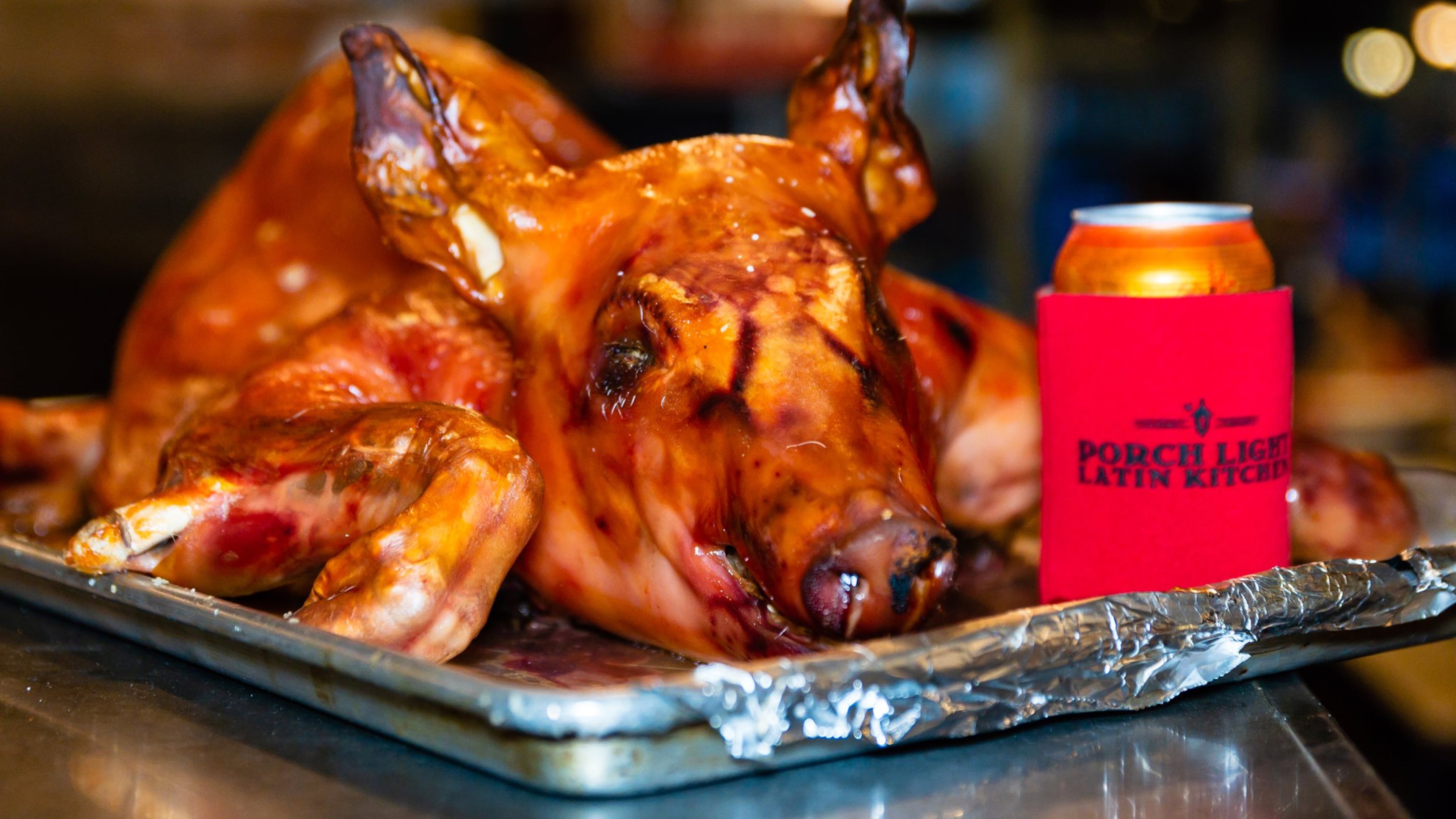Barbecue traditions from around the globe accessible to Atlanta diners

If you’re trying to figure out what exactly constitutes barbecue in the U.S., things can get messy. Depending on the region you’re in, you’ll hear strong arguments for what, to a Southern ear, sound more like smoking or grilling — but certainly not barbecue.
Dive into the diverse world of global barbecue traditions, however, and things can get even more confusing. Still, at the core of any barbecue tradition, you’ll generally find two out of three criteria — heat, smoke and time — that, when applied to meat, lead to culinary treats.
From Chinese siu mei to Jamaican jerk to Korean gogi gui to Indian tandoori, most cultures have developed their own signature barbecue traditions — and they’re accessible to metro area diners, from Stockbridge to Duluth.
Even the word “barbecue” has its roots overseas. Researchers have identified links to the Hause word babbake that enslaved Africans brought with them to the New World. And, when European colonizers encountered the Caribbean Arawak term for an implement to elevate and cook meat over coals, the word barbacoa was taken back to Spain — and eventually returned to the New World to describe Mexico’s version of the dish.
"In Mexico, instead of grilling meat, we put it inside a can with a lid, cover it up with leaves from the agave plant, and let it cook all day underground," Taqueria del Sol chef and co-owner Eddie Hernandez says in his cookbook, "Turnip Greens & Tortillas."

“Like me, my uncle Jose was not a patient guy,” Hernandez writes. “He wanted to find a way to cook in his house, so he wouldn’t have to dig a friggin’ hole in his yard. And, he found his answer: the slow cooker! You just plug the thing in, throw in the meat, and let it cook while you sleep.”
Kalua pork, a Pacific Island version of slow-cooked pig, also had to be adapted, Waikikie Hawaiian BBQ owner Paul Jolin said, but it still is served with its own traditional accompaniments.
“In Hawaii, they slow-cook the pork in the ground,” Jolin said. “We cook ours most of the day slowly on (the) stovetop,” then serve the mildly spiced, smoky meat with sides of cabbage, white rice and macaroni salad.
Chef Andre Gomez has memories of cooking meat low and slow, and draws on the meat-rich culinary traditions of his parents' native Argentina and Puerto Rico at his Smyrna restaurant, Porch Light Latin Kitchen.
“It’s fire to meat, very similar, right?” said Gomez, whose restaurant version of the slow-cooked roast pork dish lechon asado requires several days’ advance ordering to prepare. “The pork is very simple, just a dry rub of oregano, garlic, cumin, salt and pepper. Lemon and lime is added in a brine.”

Barbecuing in Puerto Rico is a little more rustic, he said, with more open flame and the lechon asado cooking for hours. It’s on a spit and over open flames for anywhere from six hours to the whole day, depending on the size.
And, as with Southern barbecue, a meal’s not complete without classic sides: Puerto Rican favorite rice and beans (arroz con gandules); some type of plantain, like sweet maduros; “and, of course, rum and Coke and fruit juice,” Gomez said.
Barbecue also shows up in some of the world’s southernmost locations.
"Boerewors is the most common and popular dish cooked on a braai," said Justin Anthony, whose multiple South African restaurants offer Atlantans a taste of his country's grilled meat traditions. Boerewors, a sausage made from lean ground beef or pork, is on the menu at 10 Degrees South, while Cape Dutch uses a wood-fired braai grill to prepare dishes with steak, lamb, fish and chicken.
“Typically, there is a braai master, who is solely in charge of the grilling,” Anthony added, stressing the social aspect of gathering around a grill with friends, family, food and drinks. “It’s typical of the host to be the braai master, and to provide different proteins and vegetables to be grilled. Guests can also bring their own preference for the host to grill.”
Gomez, who holds an annual Pigsgiving pig roast the day after Thanksgiving at his home, agreed. It’s not just about the meat, he said. “It’s the whole thing that goes along with it: sitting around, drinking, playing dominoes. It’s family and feeding people.”
10 Degrees South. 4183 Roswell Road NE, Atlanta. 404-705-8870, 10degreessouth.com.
Cape Dutch. 1782 Cheshire Bridge Road NE, Atlanta. 404-343-0313, capedutchrestaurant.com.
Porch Light Latin Kitchen. 300 Village Green Circle SE, Smyrna. 678-309-9858, porchlightlatinkitchen.com.
Taqueria del Sol. Multiple locations. taqueriadelsol.com.
Waikikie Hawaiian BBQ. 2160 Briarcliff Road NE, Atlanta. 404-638-1115, waikikie.com.
